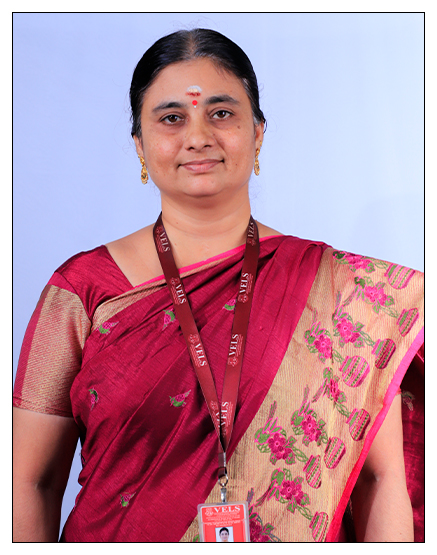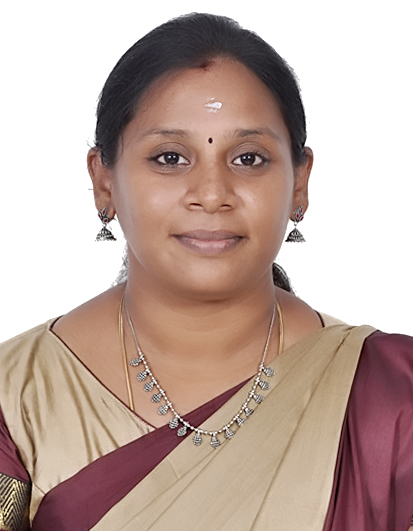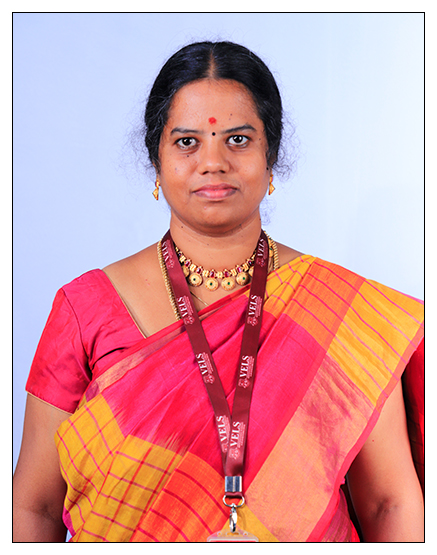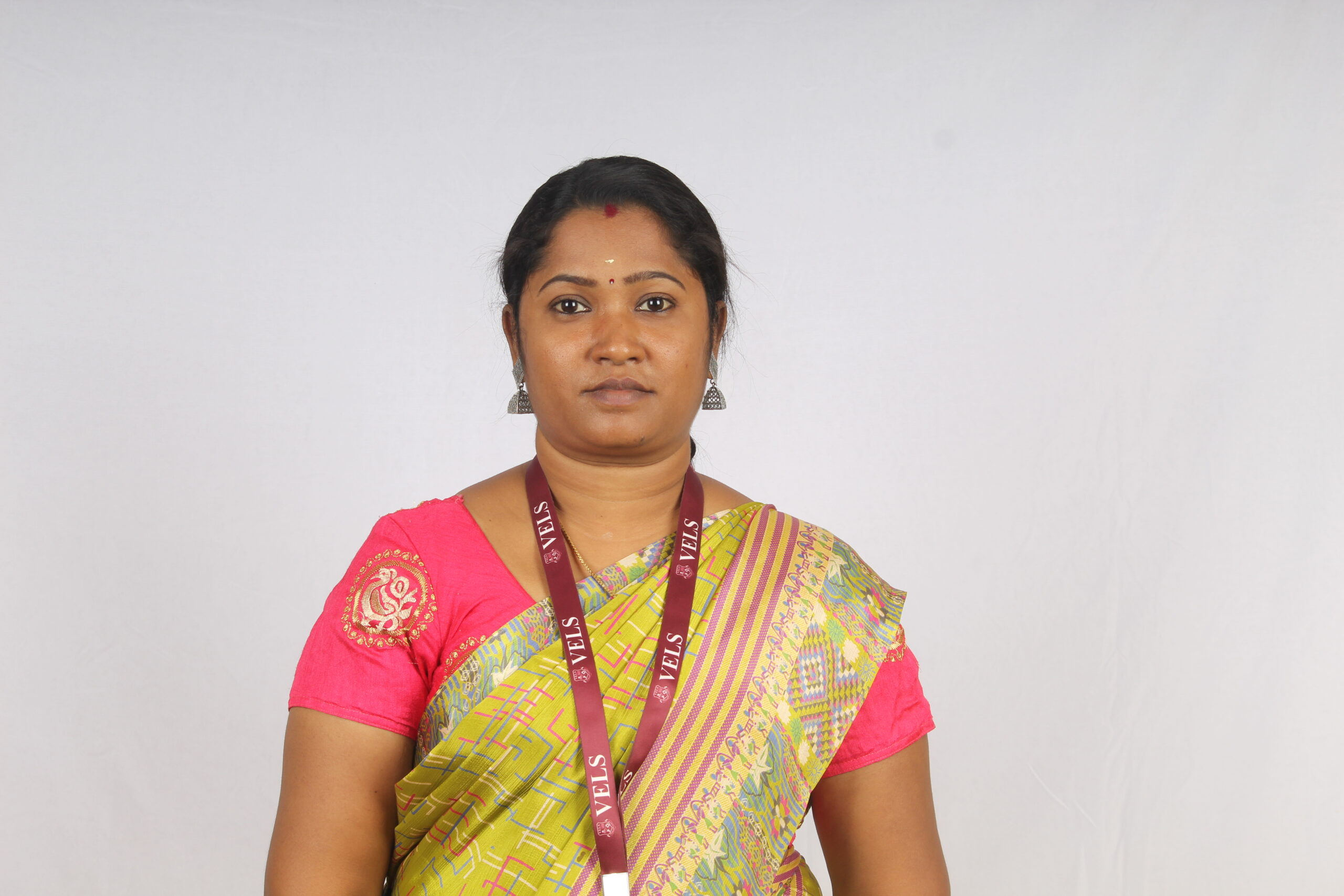About the Department
Vision & Mission
Vision
The Vision of Department of Bioinformatics is to provide the best education and training for students to prepare them for professional research careers in biological sciences as well as software industry. The Department plans to produce eminent scientists in the field of Bioinformatics.
Mission
To facilitate, conduct and organize research work by teams comprised of core groups leading to inventions and to cooperate to meet this end and also to work acquiring the patents of such inventions. With its strong commitment to education, the department expects its graduates to have acquired solid subject knowledge and laboratory skills in the field of Bioinformatics upon their graduation. In addition, with our innovative curriculum, the graduates are also expected to possess all-round competence in IT technology, information gathering and synthesis, critical thinking, efficient oral and written communication, and teamwork spirit and capability so that their career prospects go beyond the field of life sciences.
List of Courses
- Ph.D
- M. Phil
- M.Sc Bioinformatics
- B.Sc Biocomputing
Features of the department
Well-equipped state-of-the-art laboratory with Air-conditioned computer lab & with latest IBM machines loaded which complete bioinformatics workbench coupled with high speed Broad band internet connection, enabling effective use of biological software for research purposes.
Objective/Thrust Area of the programs
Bioinformatics is the science of developing computer databases and algorithms for the purpose of speeding up and enhancing biological research. The Department of Bioinformatics was started to facilitate teaching and research in the interdisciplinary areas of Structural Bioinformatics and Computational Genomics, and to create an intellectual environment for interdisciplinary education and training. The Department is comprised of well experienced faculty members with research interests and expertise in Structural Biology, Molecular Modeling, Computer Aided Drug Design, Pharmacogenomics, Cheminformatics, Molecular Biology, Genetic Engineering, Genomics, Proteomics, Bio-computing, Database & Software development. Moreover, – students can access hundreds of scientific journals on their lab desktop, subscribed by the university, which is essential for project work and subsequent Publication.
Faculty-Student Ratio: 25:1
Entry Requirements
B.Sc Biocomputing: Candidates for admission to the first year of Bachelor of Biocomputing shall be required to be qualifying +2 or equivalent examination with Biology or computer science background other than arts conducted by government of Tamilnadu or an examination accepted as equivalent thereof by the syndicate of VISTAS.
M.Sc. Bioinformatics: Candidates for admission to the first year of Master of Bioinformatics shall be required to hold a Bachelor’s Degree in Science in the disciplines of Genetics, Biochemistry, Biotechnology, Physics, Chemistry, Computer Science, Botany, Zoology, Microbiology, Mathematics, Statistics, Nutrition, Foodservice and Management & Dietetics, Agriculture, B.E./B. Tech (Biotech), B.V.Sc, MBBS, BDS, B. Pharm, BPT &, BCA from this University, or an equivalent examination of some other University, accepted by the Syndicate as equivalent thereto and they shall be permitted to appear and qualify for the M.Sc. Bioinformatics Degree examination of this University after a course of two academic years in an affiliated college of this University.
Program Educational Objectives (PEO)
PROGRAM EDUCATIONAL OBJECTIVES (PEO)
PEO-1: An ability to develop the practical knowledge related to Life science, Computer science and information technology in an interdisciplinary manner for providing innovative ideas to solve the biological problems and promote the research globally.
PEO-2: The extraordinary skills to analyze the scientific big data, create a novel objective, implement methodology to derive a key finding and apply this knowledge for welfare of society. Students should be able to develop as computational expert and follow the ethical rules on areas related to Life sciences and Bioinformatics.
PEO-3: Develop as a resource person with interdisciplinary knowledge who can finish the advance tasks related to biology and computer science in a challenging scientific environment.
PEO-4: Update knowledge on programming and database development on biological data and information and help the scientific research community.
PEO-5: U.G. program and its knowledge give confidence to the students and shine in the booming bioinformatics careers related to academics, research and development and industry.
Program Educational Objectives (PEO)
PROGRAM EDUCATIONAL OBJECTIVES (PEO)
PEO-1: Describe the basis of biology, computer science and information technology and develop as a key expertise in applications of bioinformatics.
PEO-2: An extra-ordinary ability to gain practical knowledge and keen in developing a successful career in academia, R&D institutes and industrial sector.
PEO-3: Possess a high-level knowledge in comparing and analyze the best programming language, database and software to implement and support the critical biological challenges.
PEO-4: Promoting the bioinformatics hardcore research and support the experimental scientist in the hypothesis and mechanism related to biology.
PEO-5: Will address the increasing need for skilled computer expert in maintaining and analyze the biological resource and big data and contribute globally.
Programme Outcomes (PO) & Programme Specific Outcome (PSO)
PROGRAM OUTCOME (PO)
PO-1: Graduates will be able to develop, analyse, solve and troubleshoot biological problems in implementation of bioinformatics protocols and Information technology for the successful career.
PO-2: Environment sustainability and Ethics: Graduates will get adequate knowledge to use information and implement the evolving technology in Bioinformatics to find the solutions for environmental protection and remediation.
PO-3: Modern tool usage and communication: Graduates will effectively be able to manage the scientific task by utilizing the big data resources and retrieve and solve the biological problems effectively.
PO-4: Analysis of biological data: Graduates will be well versed in handling the biological data from the different database available online and the Maintenance of biological data by implementing using computer programming.
PO-5: Graduates will acquire self- reliance in handling Biocomputing techniques and able to interpret, analyze the biological data and execute experimental techniques independently.
Programme Specific Outcome (Pso)
The B.Sc. program (Biocomputing) at VISTAS has documented measurable outcomes that are based on the needs of the programme’s stakeholders. The programme specific outcomes that the department presently adapts to future graduates are as follows:
PSO-1: The primary goal is to make the students to understand biological concepts.
PSO-2: To acquire knowledge on the basics of computer and the principles of programming languages.
PSO-3: To understand the levels of programming language and its application in various fields of biology.
PSO-4: To obtain the knowledge on basics in designing the webpage for a database as well as online tools and softwares.
PSO-5: To utilize the bioinformatics skill to venture in development of fields like pharmaceutical and biotechnological concerns.
Programme Outcomes (PO) & Programme Specific Outcome (PSO)
PROGRAM OUTCOME (PO)
- PO-1: Life Sciences knowledge: Successful candidates will acquire current/recent specific knowledge in the respective discipline with proficiency in practical skills and leadership skills for a successful career.
- PO-2: Problem analysis: Successful candidates will be able to analyse, design standards, resolve and troubleshoot problems in implementation or standardization of Life sciences protocols.
- PO-3: Design/development of solutions: Successful candidates will develop creative and cognitive thinking and cooperate with each other to solve problems in the field of Life sciences.
- PO-4: Conduct investigations of Practical problems: Successful candidates will acquire capabilities to plan and design protocols and utilize practical skills.
- PO-5: Conduct investigations of experimental problems: To validate hypothesis by executing experimental techniques independently coupled with the ability to assimilate, analyse, interpret and accurately evaluate subsequent data.
- PO-6: Modern tool usage: Successful candidates will effectively be able to manage resources and time using ICT and other computer enabled devices.
- PO-7: Ethics: Successful candidates will be aware of their role and responsibility in handling and use of microbes including genetically modified microorganisms.
- PO-8: Communication: Successful candidates will have the ability to understand and communicate all ideas and concepts effectively.
- PO-9: Environment sustainability: Successful candidates will get adequate knowledge to use information and implement solutions for environmental protection, safeguards and remediation.
PROGRAMME SPECIFIC OUTCOME (PSO)
The M.Sc. programme Bioinformatics at VISTAS has documented measurable outcomes that are based on the needs of the programme’s stakeholders. The programme specific outcomes that the department presently adapts to are as follows:
PSO-1: The syllabus addresses the need to introduce students to new tools and application in bioinformatics.
PSO-2: The PG course helps every candidate to analysis the software for data studies and comparisons and provides tools for modelling, visualizing, exploring and interpreting data.
PSO-3: To access the wealth of data to answer questions relevant to the average biologist, and is highly hands-on.
PSO-4: The main goal of the M.sc Bioinformatics to convert multitude of complex data into useful information and knowledge.
PSO-5: The course is intended to describe not only with the programming languages but it covers the proteomics, genomics, cell and molecular biology, genetic engineering, biochemical pathways etc., relevant to the improvement and development of mankind and industrial application purposes.
Curriculum & Syllabus
CURRICULUM & SYLLABUS
| Hours/Week | Maximum Marks | |||||||
|---|---|---|---|---|---|---|---|---|
| Code No. | Course | Lecture | Tutorial | Practical | Credits | CA | SEE | Total |
| SEMESTER1 | ||||||||
| LANG | Tamil I/ Hindi I/ French I | 3 | 0 | 0 | 3 | 40 | 60 | 100 |
| ENG | English I | 3 | 0 | 0 | 3 | 40 | 60 | 100 |
| CORE1 | Basic of Computer, Algorithm and Statistics | 3 | 1 | 0 | 4 | 40 | 60 | 100 |
| CORE2 | Basic of Bioinformatics | 3 | 1 | 0 | 4 | 40 | 60 | 100 |
| CORE3 | Cell Biology and Biomolecules | 4 | 0 | 0 | 4 | 40 | 60 | 100 |
| CORE | Basic Concepts and Algorithm in Computer -Practical 1 | 0 | 0 | 4 | 2 | 40 | 60 | 100 |
| CORE | Basic concept of Bioinformatics Practical 2 | 0 | 0 | 4 | 2 | 40 | 60 | 100 |
| AECC | Communication Skills | 1 | 0 | 2 | 2 | 40 | 60 | 100 |
| SEC | Orientation/Induction programme / Life skills | - | - | - | - | - | - | - |
| Total | 17 | 2 | 10 | 24 |
Curriculum & Syllabus
CURRICULUM & SYLLABUS
MINIMUM CREDITS TO BE EARNED: 90
| SEMESTER I | ||||||||
|---|---|---|---|---|---|---|---|---|
| Hours/Week | Maximum Marks | |||||||
| Code No. | Course | Lecture | Tutorial | Practical | Credits | CA | SEE | Total |
| CORE 1 | Enzymes And Metabolisms | 4 | 0 | 0 | 4 | 40 | 60 | 100 |
| CORE 2 | Computer Programming in C and C++ | 4 | 0 | 0 | 4 | 40 | 60 | 100 |
| CORE 3 | Introduction To Bioinformatics | 3 | 0 | 2 | 4 | 40 | 60 | 100 |
| CORE | Practical 2 – Bio programming in C and C++ | 0 | 0 | 4 | 2 | 40 | 60 | 100 |
| DSE 1 | Genomics and Transcriptomics | 4 | 0 | 0 | 4 | 40 | 60 | 100 |
| DSE 2 | Proteomics: Principles and Techniques | 4 | 0 | 0 | 4 | 40 | 60 | 100 |
| SEC | Soft skill 1/Sector skill course | 2 | 0 | 0 | 2 | 40 | 60 | 100 |
| Total | 21 | 0 | 6 | 24 |
Eligibility Criteria
| Program | Program Duration (Year) | Eligibility | Criteria for Merit |
|---|---|---|---|
| B.Sc Bio Computing | 3 Years (6 Semesters) | Pass in +2, or equivalent with Biological Science or Computing Science as one of the subjects along with Maths / Pure Science / Biochemistry / Microbiology / Biotechnology / Computer Applications / Commerce with Computer Science / Commerce with Maths and + Vocational - Agriculture can be accepted as equivalent thereof by the syndicate of VISTAS. | Merit based on the percentage of marks secured in the qualifying examination |
Eligibility Criteria
| Program | Program Duration (Year) | Eligibility | Criteria for Merit |
|---|---|---|---|
| M.Sc Bio-Informatics | 2 Years (4 Semesters) | Degree in Genetics, Biology, Biochemistry, Biotech, Physics, Chemistry, Computer Science, Botany, Zoology, Microbiology, Mathematics, Statistics, Nutrition, Food Service, Management & Diatetics, Agriculture, Bioinformatics, B.E/ B.Tech (Biotech) B.V.Sc, MBBS, BDS, B.Pharm, BPT& BCA, BCA(Hons), B.Sc.(IT) (10+2+3) Pattern. | Merit based on the percentage of marks secured in the qualifying examination |
Career Prospects
CAREER PROSPECTS
- Software development
- Bioinformatics Analyst
- Clinical pharmacologist
- Program Specialist
- Computational Biologist
- Database Designer and Maintenance:
- Bioinformatics Data Scientist-
- Health care Associates
- Clinical Data Developer
- Cheminfomatician
Career Prospects
CAREER PROSPECTS
- Bioinformatics Research Scientist
- Bioinformatics Engineer
- Bioinformatics Analyst
- Clinical pharmacologist
- Program Specialist
- Pharmacogenomics
- Computational Biologist
- Bioinformatics Data Scientist
- Health care Associates
- Clinical Data Developer
Alumni Testimonials

It was a great experience studying at VISTAS, a memory to cherish for a lifetime. My experience at the Bioinformatics department (VISTAS) was full of learning and grooming. I found the course curriculum to be very challenging but rewarding. The teachers and mentors are really friendly and helped me to improve my academic and interpersonal skills.
Ms. Varsha S (B.Sc Biocomputing) 2017-2020
Project Associate, Accenture

It was my immense luck and fortune to be a part of the Bioinformatics department (VISTAS) where I can grow. The entire faculty and department leave no stone unturned to shape one’s future. My three years at VISTA have been a wonderful experience of learning with prolific exposure to the outside. Huge respect, love, and devotion for entire faculty members and department. It’s their efforts that make me count myself into better professionals.
Ms. Jyotsna Madhavan (B.Sc Biocomputing ) 2018-2020
Developer, Icon Clinical Research, Chennai.

The course has been good, I have enjoyed because of the way the modules are scheduled. There is a lot of flexibility, so you can do other things. I really enjoyed it. Particularly the writing and the theory aspects, when I came here.
Mr. Balaji .D (B.Sc Biocomputing ) 2018-2020
Clinical quality Analyst, Alembic Pharmaceuticals

I am very happy to be part of such a great revolutionary department in current knowledge. We are aware that the technical skills can’t be finalized but requires dexterity through training. Wonderful faculty ever and they helped me a lot to develop my knowledge and skills.
Ms. Gomathi K (B.Sc Biocomputing ) 2018-2020
Project Associate, Mobius Knowledge Service, Chennai

Vels University is great place to learn. It gives me great to say with pride that I have completed my B.Sc. in Bioinformatics. The relationship between faculties and student is very cordial, which gave me an opportunity to excel in my area of interest. The Teachers and management is very supportive and they have conducted various sessions which helped me to get placed.
Ms. Raja Lakshmi R (B.Sc Biocomputing ) 2018-2020
Data Analyst, Tritan letter work PVT LTD, Chennai.
Alumni Testimonials

A VISTA is one of the best institutes that I have studied in. My department teachers are friendly and I had great classmates. The study program provides course material in a very comprehensive manner touching on all the relevant topics. I also like that our lecturers use real- life examples and the fact that the infrastructure is very useful. The skills I learnt during the program have helped me immensely in my career. I thoroughly enjoyed the coursework at Bioinformatics (VISTAS).
Mr. Agnal Vincent Paul (M.Sc. Bioinformatics) (Batch) 2010-2012
Project Bioinformatics Programmer Analyst, Genome Life Sciences Pvt. Ltd., Accenture

Its was great experience studying at Vels University, a memory to cherish for lifetime. My experience at Vels was full of learning and grooming. Being a global University it gave me an opportunity to meet different kind of people from around the world and learnt many things from them. I am thankful to all the faculties, mentors and entire Bioinformatics department for providing us with quality education. I am also very thankful to the department for organizing plenty of workshops and seminars to help me understand the culture of industry we’re going to work in. Overall it was a great experience and lifetime memory at Vels University. If you want to make a career in advance life Sciences, I would highly recommend you to join Vels University.
Mr. Dr. Sudeep Tiwari (M.Sc.Bioinformatics ) 2009-2011)
Senior Scientist , Gilead Sciences, Inc

As a student in the M.Sc. program in Bioinformatics, I gained both the skills and confidence to thoughtfully use a variety of quantitative approaches in my work. The instructors in each course were patient, understanding, and highly skilled. I would highly recommend this program to anyone wanting to expand their quantitative repertoire or for anyone who needs a refresher.
Ms. Dhananya.S (M.Sc. Bioinformatics) 2019-2021
Health care Associate, Accenture

“I like the friendly atmosphere in our Department and the fact that the teachers are really kind to the students. We are very much supported in our studies. The way of teaching is really interesting. They are also very motivational. My grades have grown up a lot as the classes are practically oriented. The teachers takes more time to focus on each
student.”
Jaswanth Jenny. P (M.Sc. Bioinformatics)
Team lead, Life sciences - Clarivate Analytics
Fee Structure
| Tuition Fee 2024 - 2025 (Per Sem) | Other Fee (Per Sem) | Total Fee 2024 - 2025 (Per Sem) |
|---|---|---|
| 15,000 | 13,000 | 28,000 |
Faculty of the Department
| Sl. No. | Name of the Faculty | Designation | Educational Qualification | Area of Specialization | Experience in Years | Vidwan ID | Photos |
|---|---|---|---|---|---|---|---|
| 1 | Dr.Radha Mahendran | Professor and Head | M.Sc., M.Tech., Ph.D. | Structural Bioinformatics, Computer Aided Drug Designing, Molecular Genetics and Microbial Informatics | 20years,2months | 234080 |  |
| 2 | Dr.Priya.R | Assistant Professor | M.Sc.,Ph.D | Biomedical Science, Structural Bioinformatics, Cheminformatics, Genetics, Nanoinformatics | 8 years 9 months | 290700 |  |
| 3 | Ms.Shanmugavani.S | Assistant Professor | M.Sc.,M.Phil.,(Ph.D) | Molecular Biology, NanoTechnology, Genetics, rDNA Technology, Genomics and Proteomics, Programming in BioPython | 3 years | 294048 |  |
| 4 | Dr.Senthil.R | Assistant Professor | M.Sc.,M.Phil.,Ph.D | Protein Folding and aggregation , Genomics, Big Data Analysis, | 16 years 2 months | 415583 |  |
| 5 | Dr.Kiresee Saghana.P.R | Assistant Professor | M.Sc.,M.Phil.,Ph.D | Molecular Modelling, Drug Designing,Genomics and Proteomics, Big Data Analysis, Programming in BioPERL, Biophython, R-Programming, | 4 years 2 months | 480699 |  |
Fee Structure
| Tuition Fee 2024 - 2025 (Per Sem) | Other Fee (Per Sem) | Total Fee 2024 - 2025 (Per Sem) |
|---|---|---|
| 20,000 | 20,000 | 40,000 |
Faculty of the Department
| Sl. No. | Name of the Faculty | Designation | Educational Qualification | Area of Specialization | Experience in Years | Vidwan ID | Photos |
|---|---|---|---|---|---|---|---|
| 1 | Dr.Radha Mahendran | Professor and Head | M.Sc., M.Tech., Ph.D. | Structural Bioinformatics, Computer Aided Drug Designing, Molecular Genetics and Microbial Informatics | 20years,2months | 234080 |  |
| 2 | Dr.Priya.R | Assistant Professor | M.Sc.,Ph.D | Biomedical Science, Structural Bioinformatics, Cheminformatics, Genetics, Nanoinformatics | 8 years 9 months | 290700 |  |
| 3 | Ms.Shanmugavani.S | Assistant Professor | M.Sc.,M.Phil.,(Ph.D) | Molecular Biology, NanoTechnology, Genetics, rDNA Technology, Genomics and Proteomics, Programming in BioPython | 3 years | 294048 |  |
| 4 | Dr.Senthil.R | Assistant Professor | M.Sc.,M.Phil.,Ph.D | Protein Folding and aggregation , Genomics, Big Data Analysis, | 16 years 2 months | 415583 |  |
| 5 | Dr.Kiresee Saghana.P.R | Assistant Professor | M.Sc.,M.Phil.,Ph.D | Molecular Modelling, Drug Designing,Genomics and Proteomics, Big Data Analysis, Programming in BioPERL, Biophython, R-Programming, | 4 years 2 months | 480699 |  |
 CHAT WITH A STUDENT
CHAT WITH A STUDENT